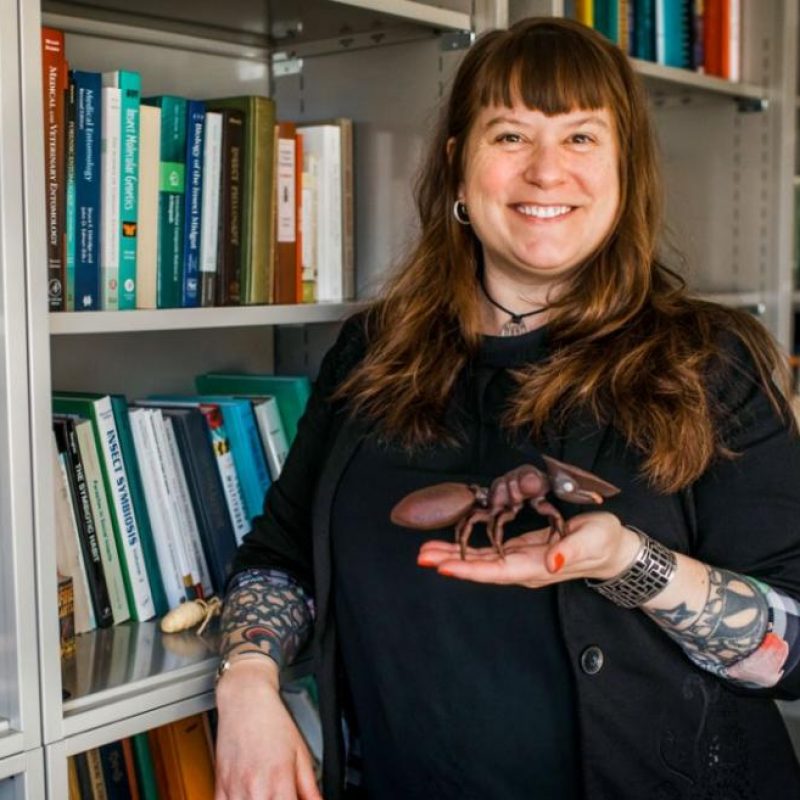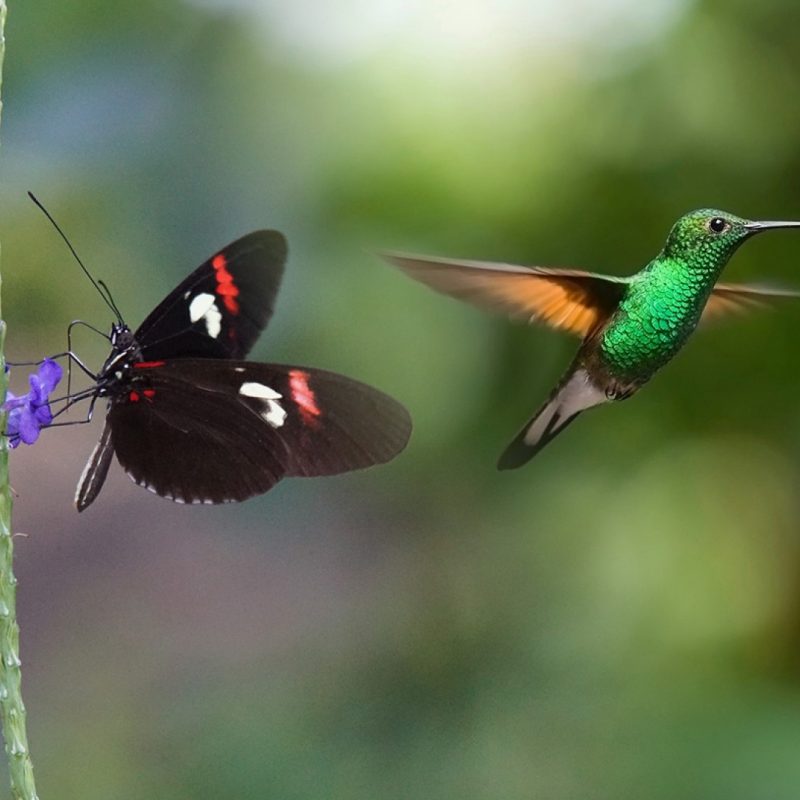Tag: Disease Ecology and Evolution
-

Corrie Moreau: Sharing 7 million insects with the digital world
Prof. Corrie Moreau talks about digitizing the Cornell University Insect Collection. The full article appears below. CALS ARTICLE By Krishna Ramanujan As director and head curator of the Cornell University Insect Collection, Corrie Moreau has numerous tasks on her to-do list, including one that could last her entire career: digitizing the collection’s 7 million specimens. Digitization is a […]
-

Ellner develops new tool for modeling
Prof. Stephen Ellner is developing new statistical tools for ecological modeling with Associate Professor Giles Hooker through a project supported by the NSF, as described in this Cornell Research article from last summer. LINK: https://research.cornell.edu/research/new-statistical-tools-ecological-modeling
-

Casteel: Nature Plants paper
Associate Professor Clare Casteel (SIPS) has a paper out in Nature Plants, in collaboration with labs at UC Davis: “Organic management promotes natural pest control through altered plant resistance to insects” PAPER: https://www.nature.com/articles/s41477-020-0656-9.epdf
-

Host-microbe interactions
The Moreau Lab studies the evolution of symbiosis between animals and their diverse microbial communities. Current work focuses on the benefits of microbial communities for ant hosts from nutrient provisioning to contributions to cuticle formation. Methods include amplicon sequencing, quantification, metagenomics, functional assays, experimental manipulations, and more. This work is deeply rooted in natural history […]
-

Vector Aedes aegypti, from functional genetics to ecological analyses
Mosquitoes cause 400,000 malaria deaths and transmit viruses to hundreds of millions. The vectorial capacity of mosquitoes depends on their ability to survive infection. However, it remains unclear what key mechanisms underlie the mosquito tolerance and resistance to infection with multiple microbes (bacteria, fungi, microbiota, viruses). We are particularly interested in approaches ranging from lab controlled […]
-

Evolution of Symbiosis
The Moeller Lab studies the evolution of symbiosis between animals and microorganisms. Our current work focuses on vertebrates’ co-evolutionary histories with bacteria through a combination of -omics approaches, gnotobiotic and microbiology experiments, and natural history. We are recruiting highly motivated and independent postdoctoral candidates with training in genomics, population genetics, microbiology, immunology, or related fields. Candidates interested in the genetic […]
-

Molecular dialogue between intestinal stem cells and microbiota
The intestinal epithelium faces unique challenges as it is constantly exposed to the passage of ingested material including food, bacteria and xenobiotics. To maintain tissue function, the intestinal epithelium is undergoing continuous renewal mediated by intestinal stem cells (ISCs). ISC proliferation and differentiation are constantly adapted both to the microbes present and to the gut […]
-

Exploring host-microbe interactions related to metabolic disorders
The Brito Lab is recruiting postdocs in direct host-microbiome interactions that may modulate health. We are specifically interested in exploring bacterial proteins that can alter host cellular functions. We are looking for individuals with either computational or wet lab experience, or both. Interested candidates will be able to explore the mechanistic underpinnings of microbiome-related disorders […]
-

Development of broadly neutralizing antibodies to influenza
Development of broadly neutralizing antibodies to influenza using a novel bacterial outer membrane vesicle platform: The Leifer and Putnam labs have an ongoing collaboration to use innovative engineering techniques develop, test, and understand the underlying immunological mechanisms of new vaccine adjuvant bacterial outer membrane vesicle platforms. We are interested in postdoctoral candidates proposing to take […]
-

Ecology and Evolution in Bacteria-Host Interactions
The Hendry lab uses experimental and -omics approaches to understand the impact of host interactions on bacterial ecology and evolution, as well as how microbes influence hosts. Research in the lab focuses on a variety of systems, particularly insect and plant associated bacteria. Our interdisciplinary group encompasses broad interests within microbiology, evolution, and ecology and […]
